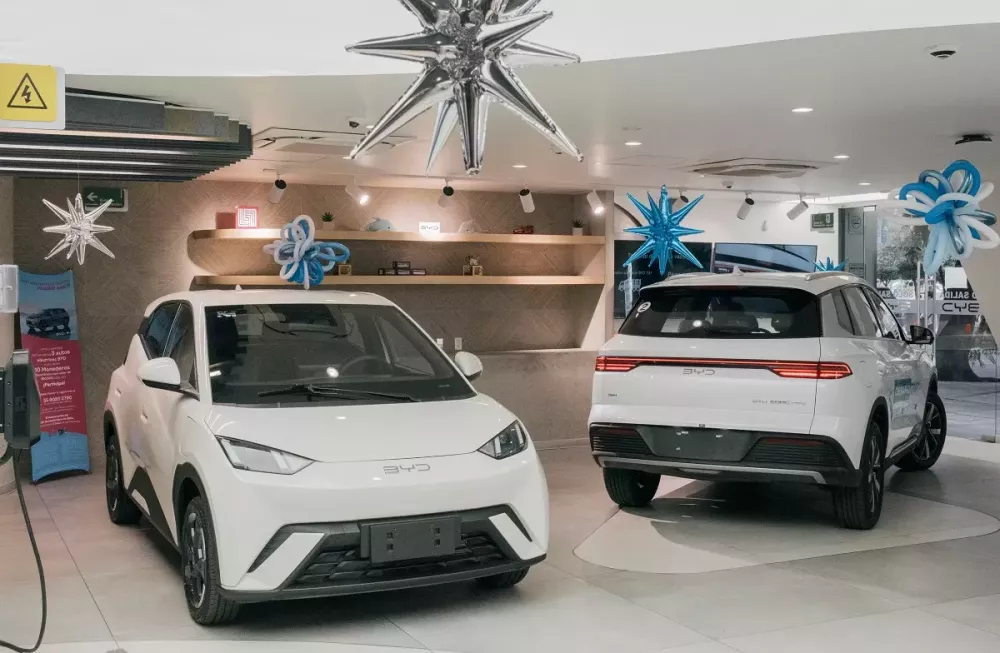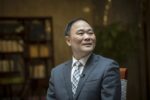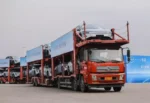China’s industry regulator found that automakers, including BYD and Chery, had falsely claimed electric vehicle subsidies they were not entitled to over a five-year period starting from 2016. The total amount falsely claimed amounted to more than 864 million yuan (approximately $121 million).
Chery, China’s largest auto exporter, was found to have registered 240 million yuan in subsidies for about 8,760 ineligible electric and hybrid vehicles. Meanwhile, 143 million yuan relating to approximately 4,900 vehicles sold by BYD were struck off the books, according to preliminary results released by the Ministry of Industry and Information Technology (MIIT) late last month.

A number of Chinese automakers have been found to make false claims for subsidies.
The audit of the electric vehicle subsidy program for the period 2016-2020 was conducted across China earlier this year. For example, in China’s Henan province, a sample inspection of 292 vehicles with related funds amounting to 475 million yuan was evaluated, according to documents released by the local government.
It is unclear whether the companies will be required to repay the erroneously claimed subsidies. It is also unknown whether the authorities have deducted the amount from payments to the automakers. Representatives of BYD and Chery have not responded to requests for comment on the matter.
The Beijing government is tightening its oversight of the automotive industry, particularly as a years-long price war has begun to affect the profits of companies across the supply chain and raised concerns about the quality and reputation of China-made vehicles.
According to documents released by the MIIT, some of the reasons for vehicles being disqualified from the subsidy list include: manufacturers failing to provide operating data for the vehicles, or the vehicles not meeting mileage requirements.
Faced with sales targets, automakers sometimes sell new vehicles in bulk to traders or dealers, who then help register the vehicles so that the manufacturers can book the sales. These nearly-new vehicles then re-enter the used car market as “zero-kilometer cars.” The Ministry of Commerce has also held meetings to address this phenomenon and temporarily suspended consumer subsidies in some localities to investigate whether dealers are defrauding to claim refunds.
China had implemented a decade-long national subsidy program to promote electric and hybrid vehicles, starting in the early 2010s, with subsidies of up to 60,000 yuan per vehicle. The subsidies were paid to manufacturers in batches, who then passed on the savings to consumers in the form of lower retail prices. However, this system created loopholes for fraudulent behavior. According to a 2016 report by the People’s Daily, dozens of companies were accused of defrauding a total of about 9.3 billion yuan (approximately $1.3 billion) in subsidies.
In the past, the Chinese government has conducted several audits of the electric vehicle subsidy program but on a much smaller scale. The 2022 audit, for example, inspected only a few automakers and a few hundred vehicles, while this year’s audit evaluated dozens of automakers and over 75,000 vehicles.
15 Electric Cars with the Best Resale Value After One Year in China: No Room for Japanese Autos
After 1 year of use, the Xiaomi SU7 retains almost 90% of its resale value. This impressive retention rate is a testament to the device’s enduring popularity and robust performance. With its sleek design, powerful features, and lasting value, the Xiaomi SU7 continues to be a top choice for consumers seeking a smart investment in technology.
“Nissan to Export ‘Made in China’ Electric Vehicles to Southeast Asia”
Nissan has unveiled its plans to commence exports of electric vehicles manufactured in China to Southeast Asian and Middle Eastern markets from 2026 onwards. This strategic move underscores Nissan’s commitment to expanding its global presence and catering to the growing demand for electric vehicles in these regions.













































